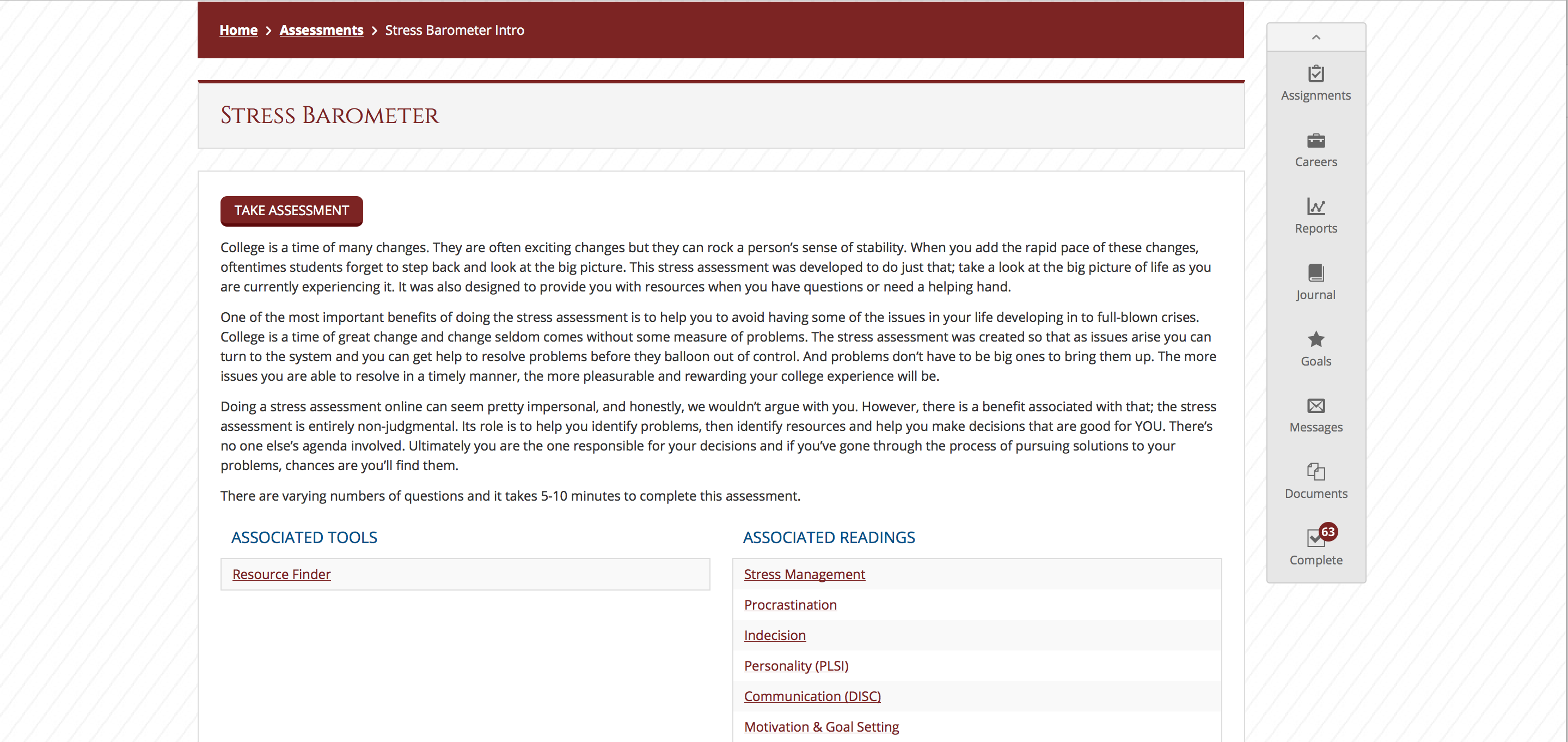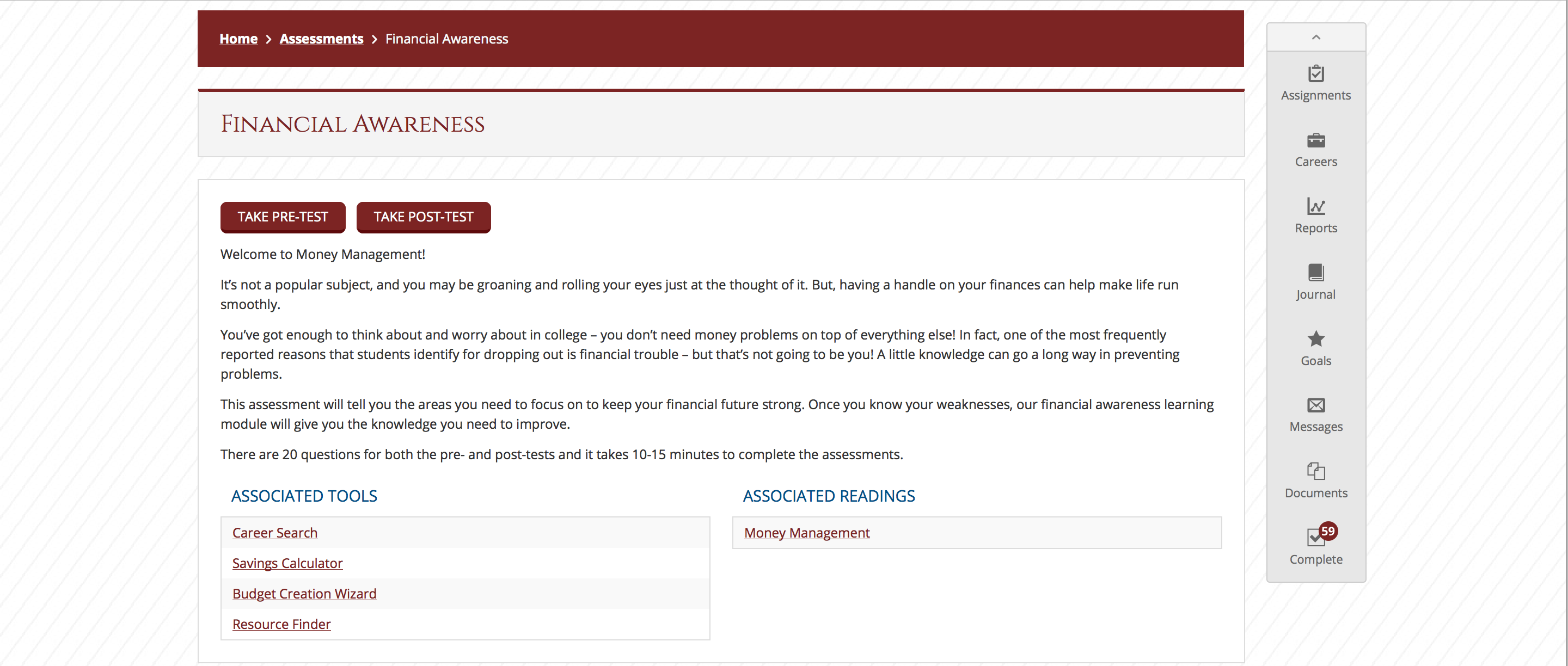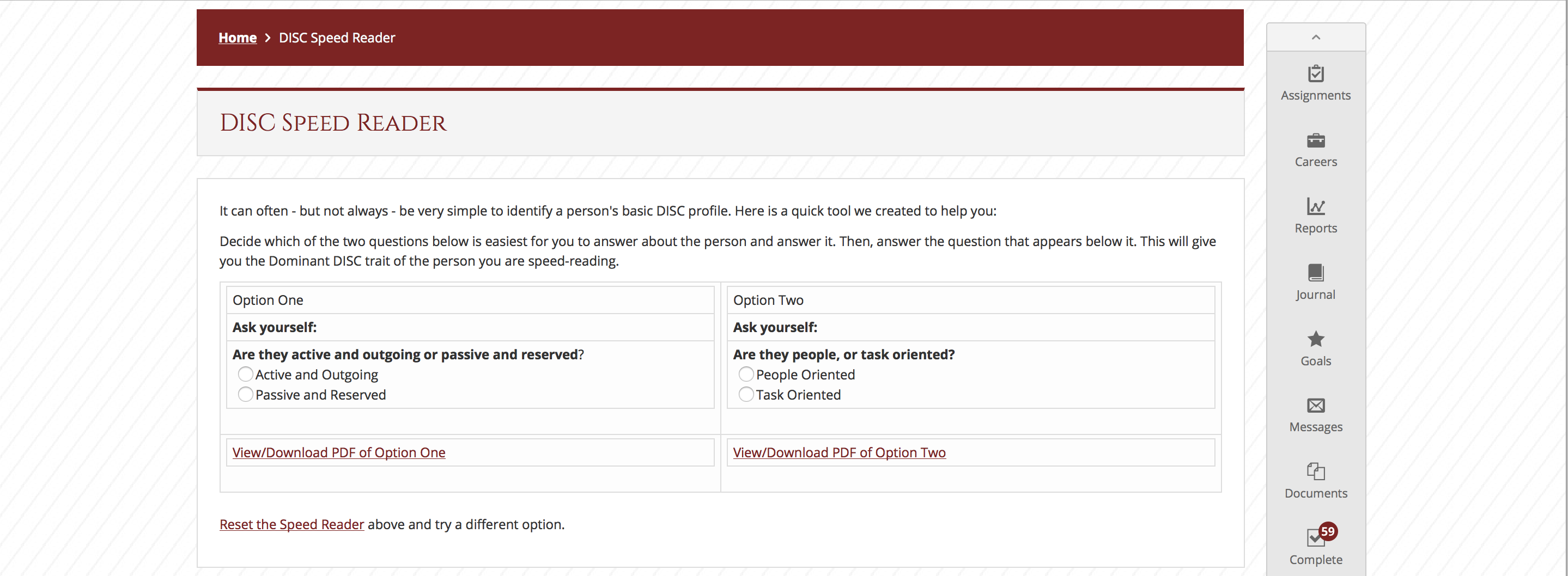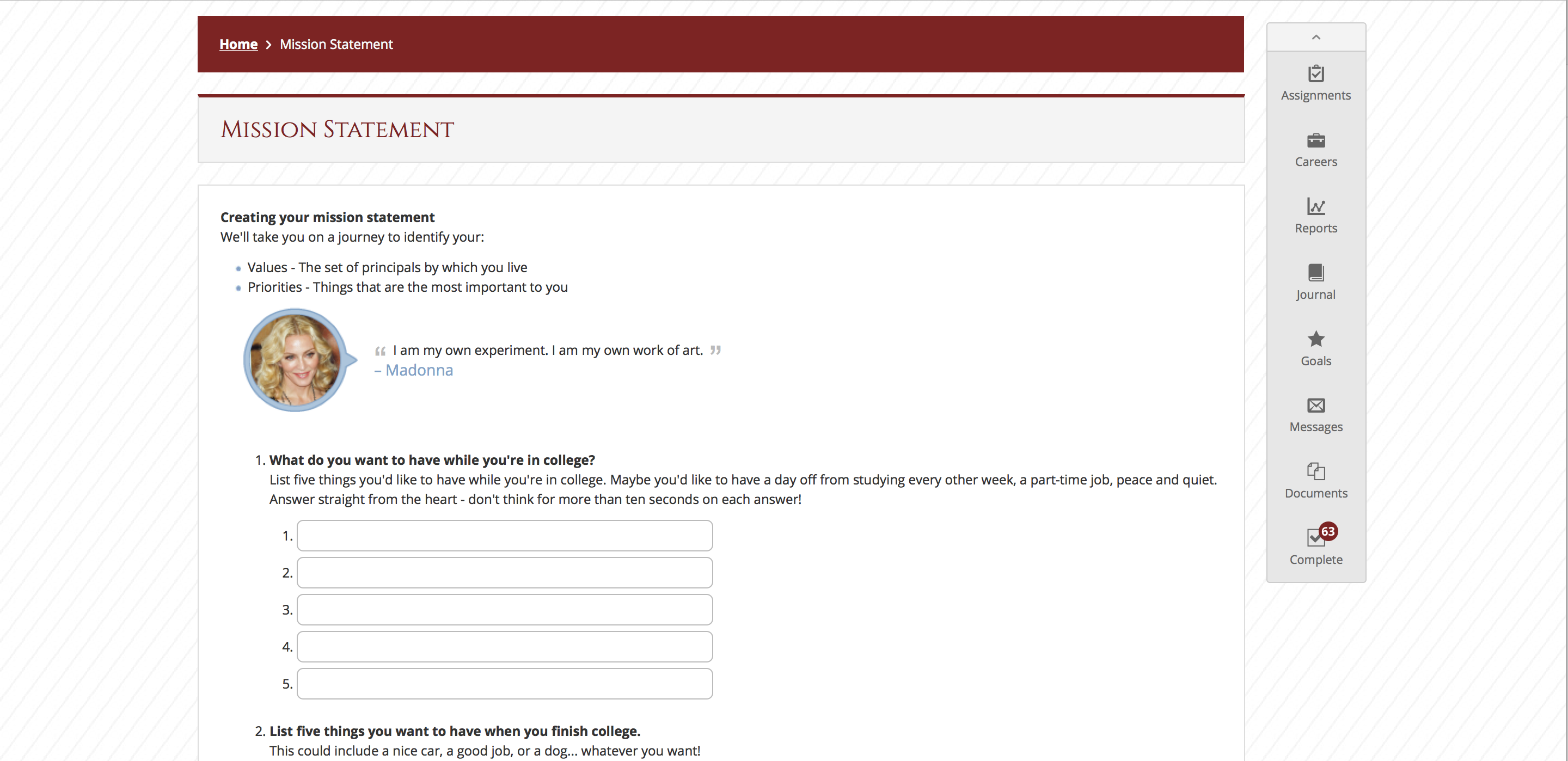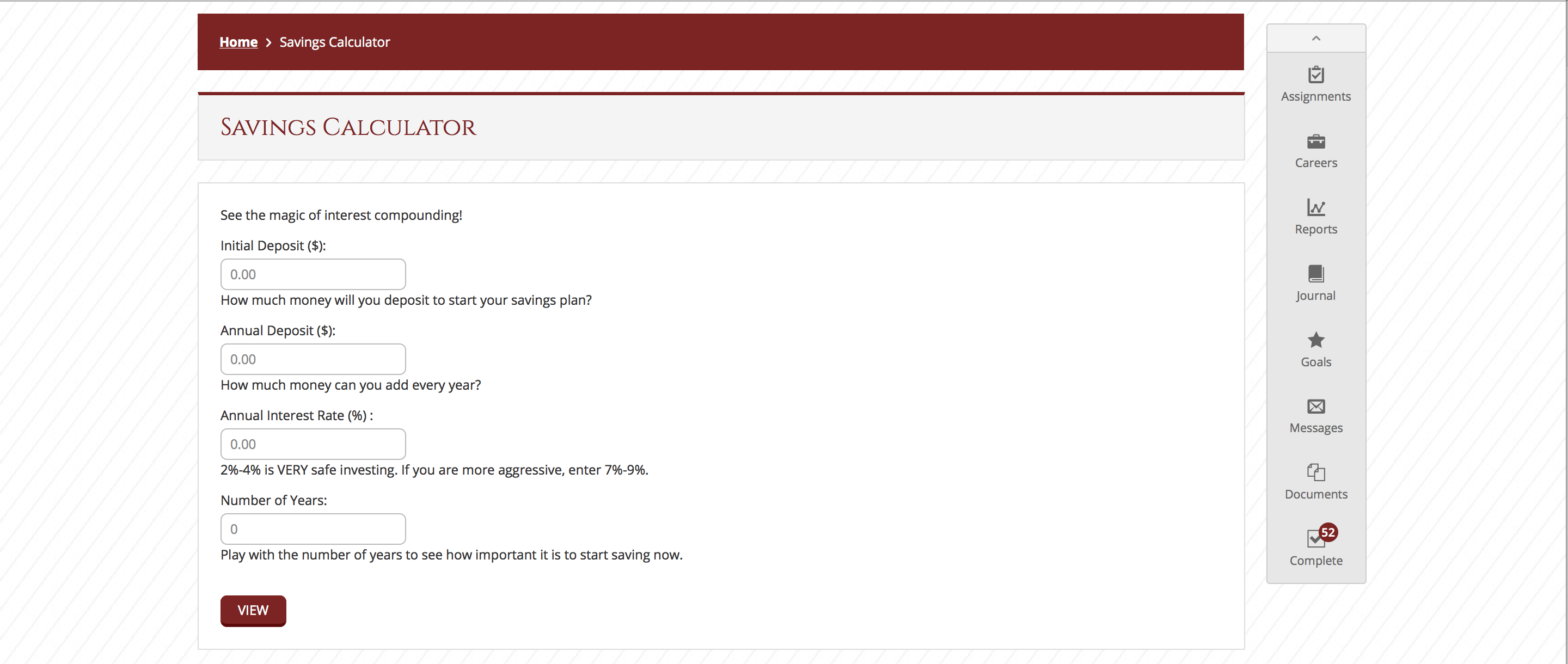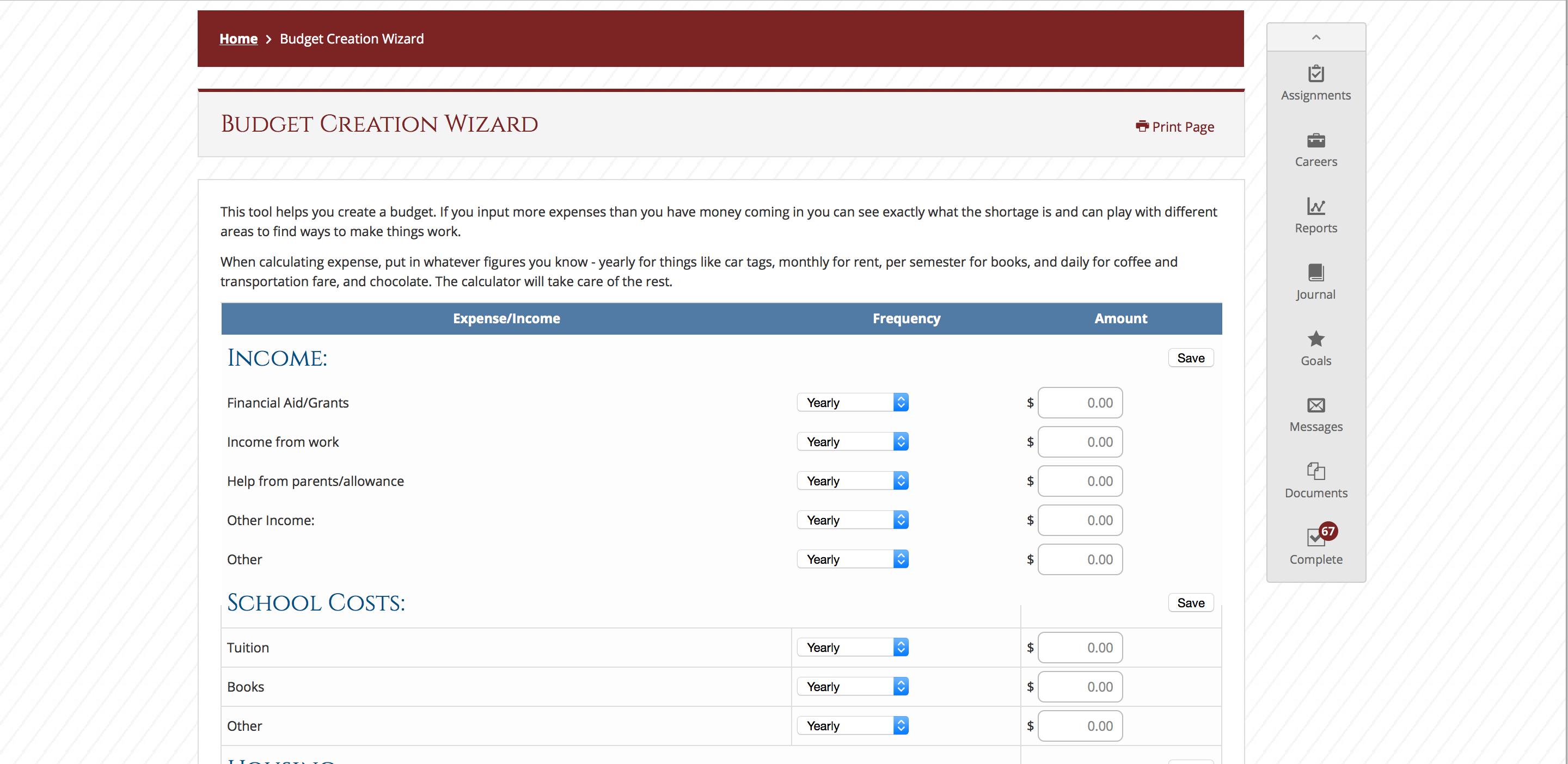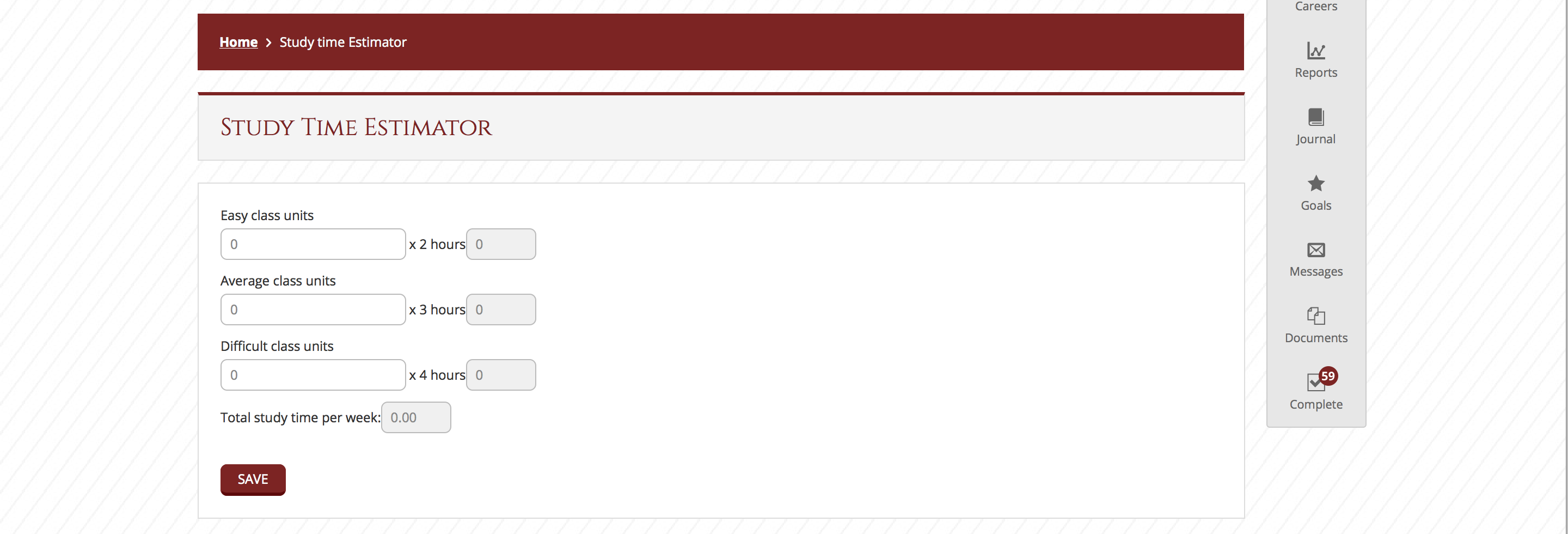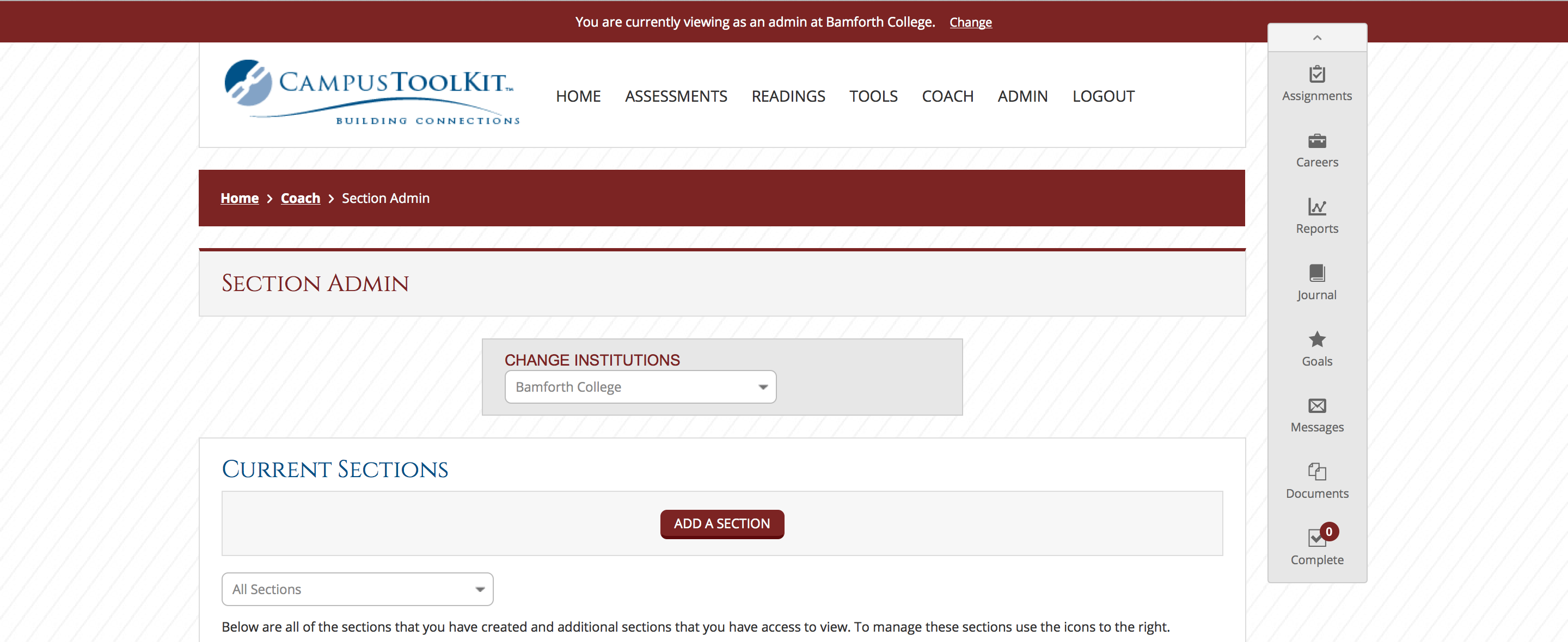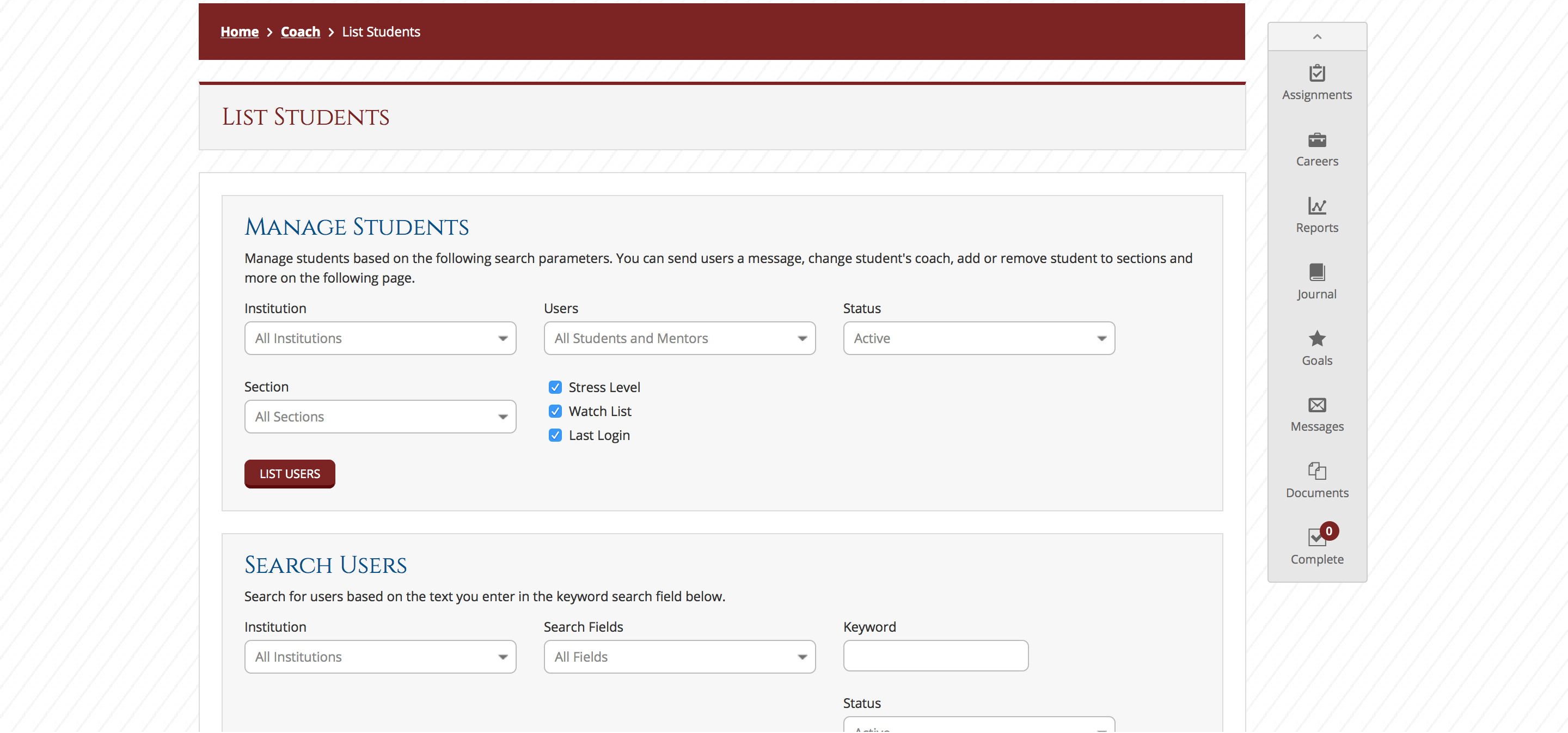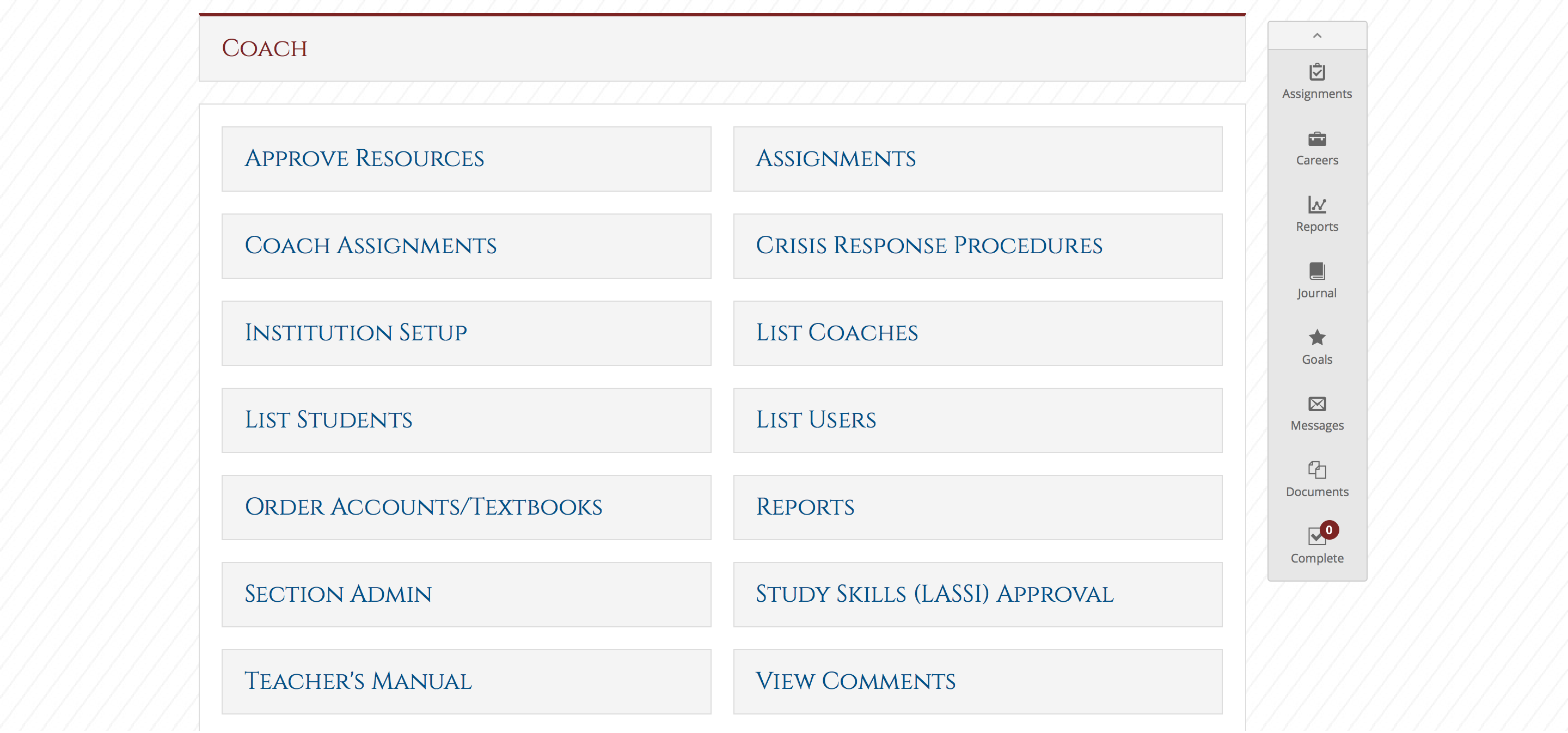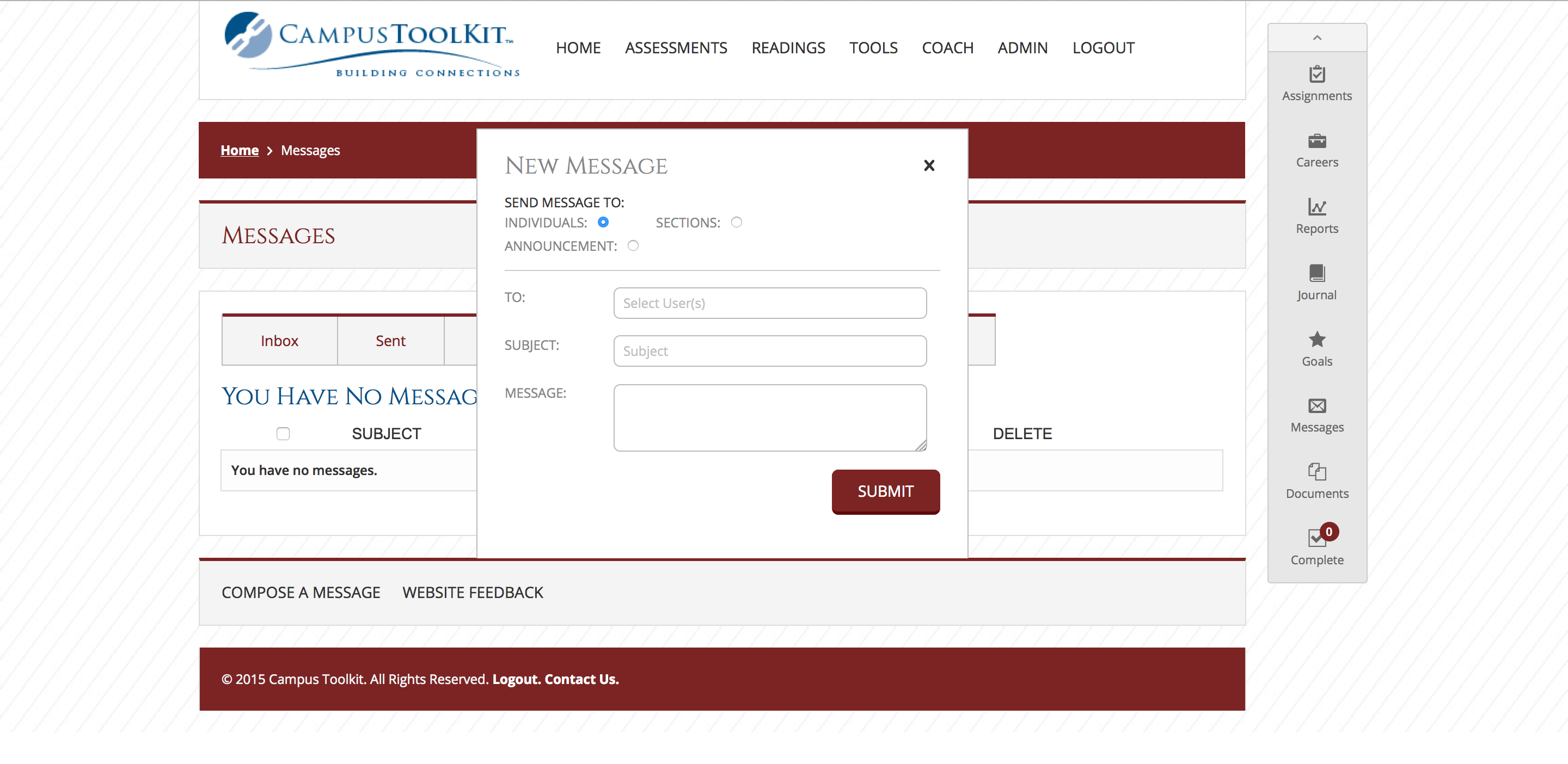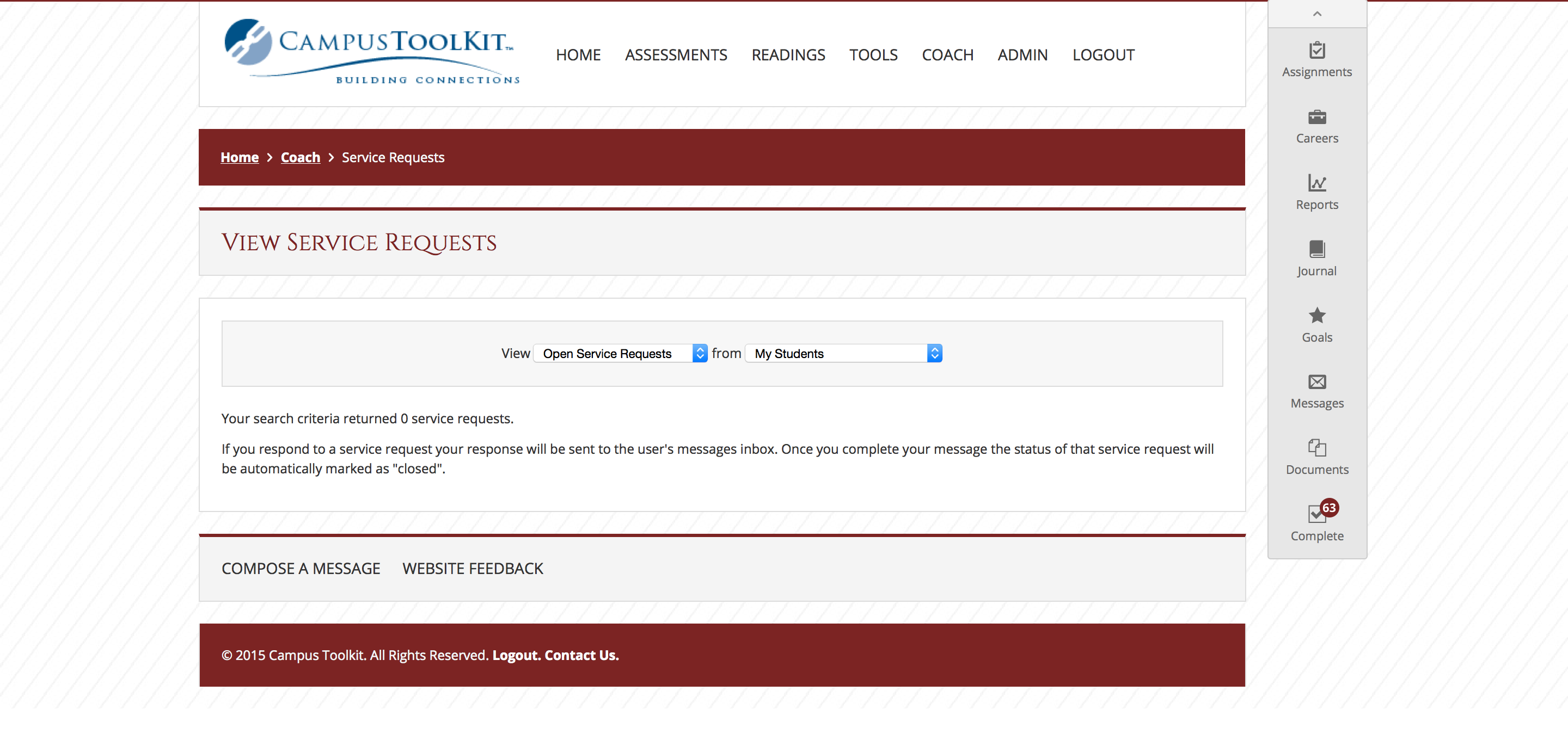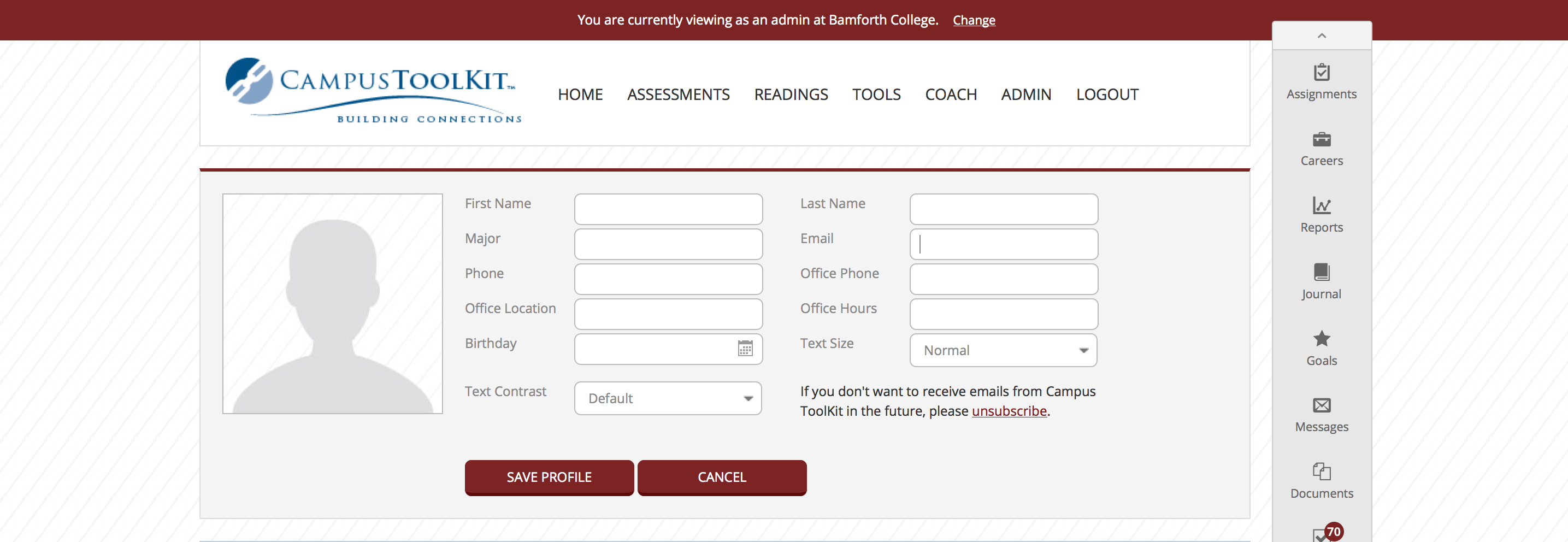Features
The chart below lists all of the features of Campus ToolKit and shows you how the book, How to Graduate from College the Easy Way … and Other Popular Fairy Tales ties in with the system. Click on the camera icon (![]() ) to view a screenshot of the feature. For the Knowledge Modules, you can click on the PDF icon (
) to view a screenshot of the feature. For the Knowledge Modules, you can click on the PDF icon (![]() ) to read sample pages. You can also view the features matrix for another visual representation of how all of the facets of Campus ToolKit work together.
) to read sample pages. You can also view the features matrix for another visual representation of how all of the facets of Campus ToolKit work together.
-
- Pics/PDF
- Assessments
- Online
- Book
-
-
Locus of Control for University Students
The LOCUS assesses, in a very broad manner, students' beliefs about their ability to control their own destiny. The Locus of Control concept suggests there are two kinds of people - those who believe that they are in control of the events in their lives (Internals) and those who believe that their lives are controlled by circumstances outside of their control (Externals). In the college environment, students who have a high Internal locus of controls think that the grades they receive are a result of how much they studied, while students who have a strong External locus of control might think that their grades are a result of how hard the test was or how much the professor liked them. A student's outlook on how much control they have over his or her college experience impacts motivation and willingness to push through the tough times.
-
-

-
PLSI (Personality)
The Paragon Learning Style Inventory provides a measure of student cognitive and perceptual preferences. There are 16 learning type combinations (e.g. - ESFJ, INFP, INTP, etc.) and students receive an overview report, a detailed report and access to our Knowledge Module on Personality Types.
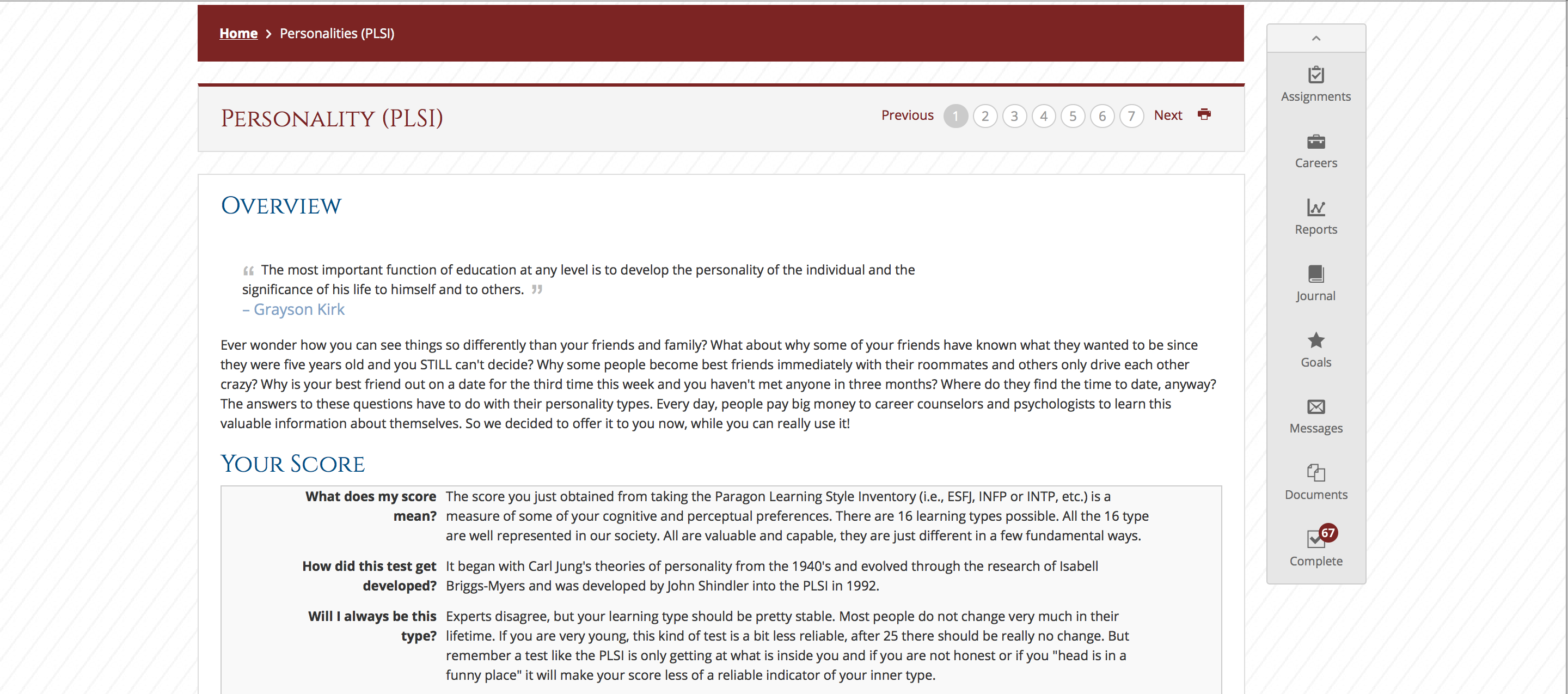
-

-
LASSI (Study Skills)
The LASSI is a 10-scale, 80-item assessment of student awareness about and use of learning and study strategies related to skill, will and self-regulation components of strategic learning. The focus is on thoughts, behaviors, attitudes and beliefs that relate to successful learning. Upon completion of the assessment, students receive an individualized action plan and access to learning materials to improve their weak areas.

-

-
DISC (Communication)
The DISC Temperament Assessment categorizes individual behavioral characteristics. The characteristics are broken down into four categories: D - Driving, I-Influencing, S-Stabilizing and C-Conscientious. Knowing our temperament categories allows us to better understand ourselves and the ways we interact with others of differing temperaments. From a school's perspective, knowing student temperaments is useful in classroom settings, advising, admissions and recruiting, marketing, coaching, mentoring and a myriad of other areas. Teaching your staff the DISC will help them to respond to the needs of your students in a far more effective manner.
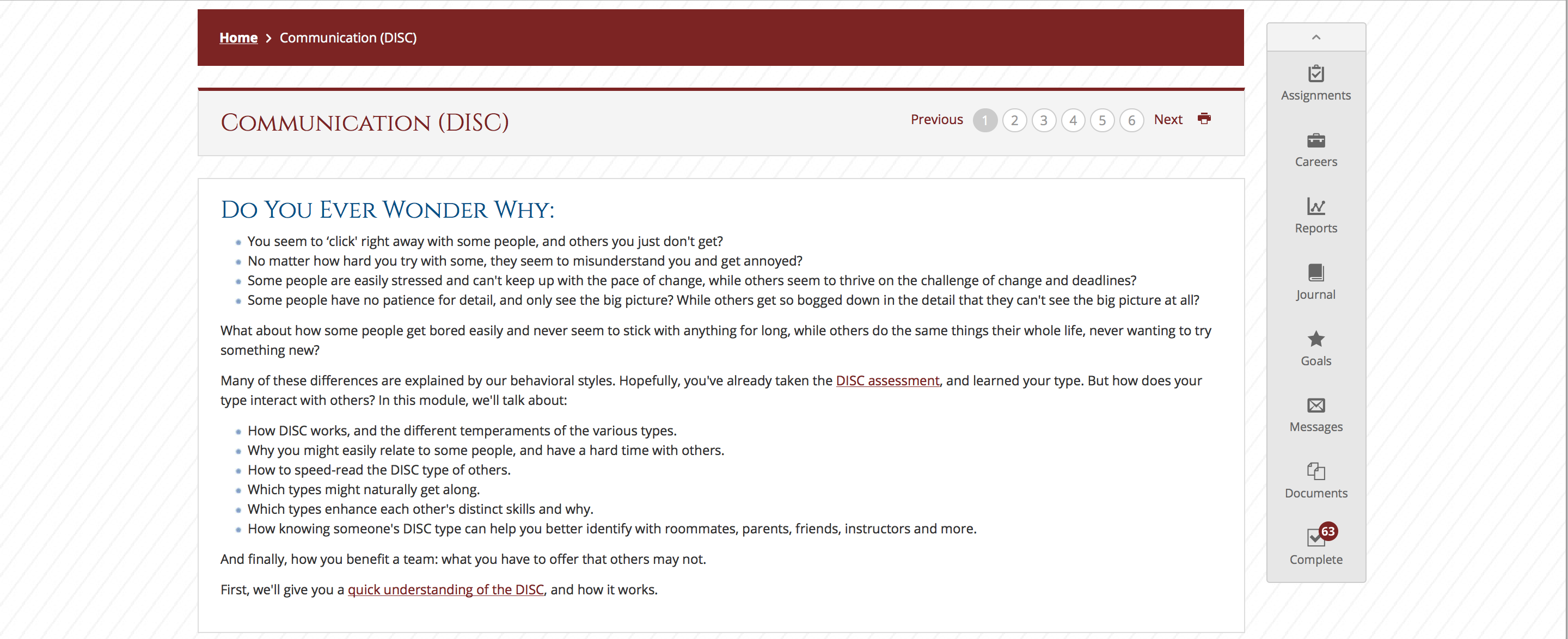
-

-
Career Interest Profiler
This U.S. Department of Labor, Employment and Training Administration instrument is a self-assessment career exploration tool that can help students discover the type of work activities and occupations that they would like and find exciting. The process will help them to identify and learn about broad interest areas most relevant to them. The assessment is composed of 180 items describing work activities that represent a wide variety of occupations as well as a broad range of training levels.
At the end of the assessment, students will receive an accurate, reliable profile of their vocational interests that:- Provides valuable self-knowledge about your vocational interests
- Fosters career awareness, and
- Provides a window to the entire world of work via the 900+ occupations within the database.
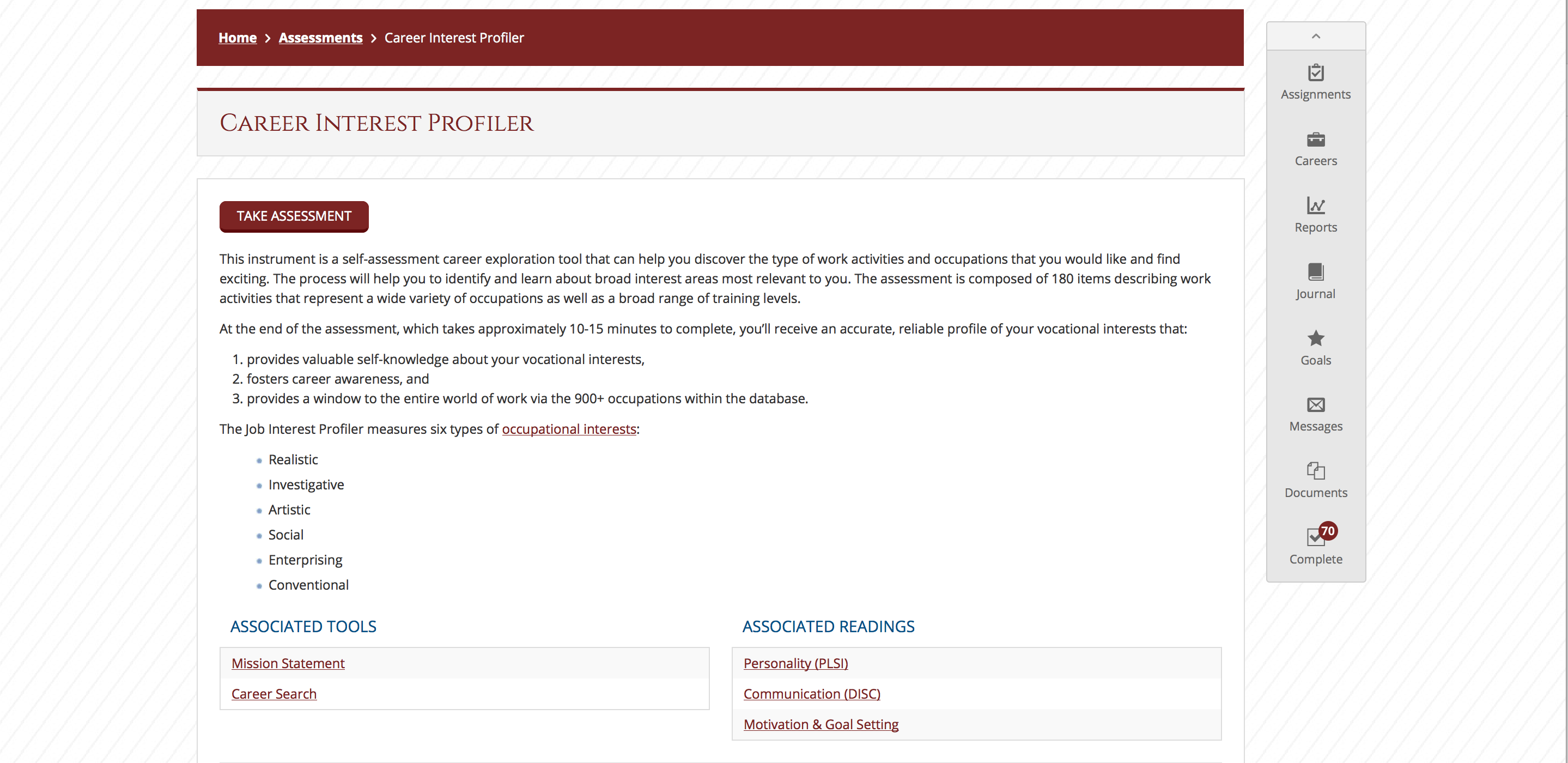
-

-
Work Importance Profiler
This U.S. Department of Labor, Employment and Training Administration career exploration tool helps students to focus on what is important to them in a job. It then identifies occupations that they may find satisfying, based on the similarity between their work values (such as achievement, autonomy, and conditions of work) and the characteristics of the occupations.
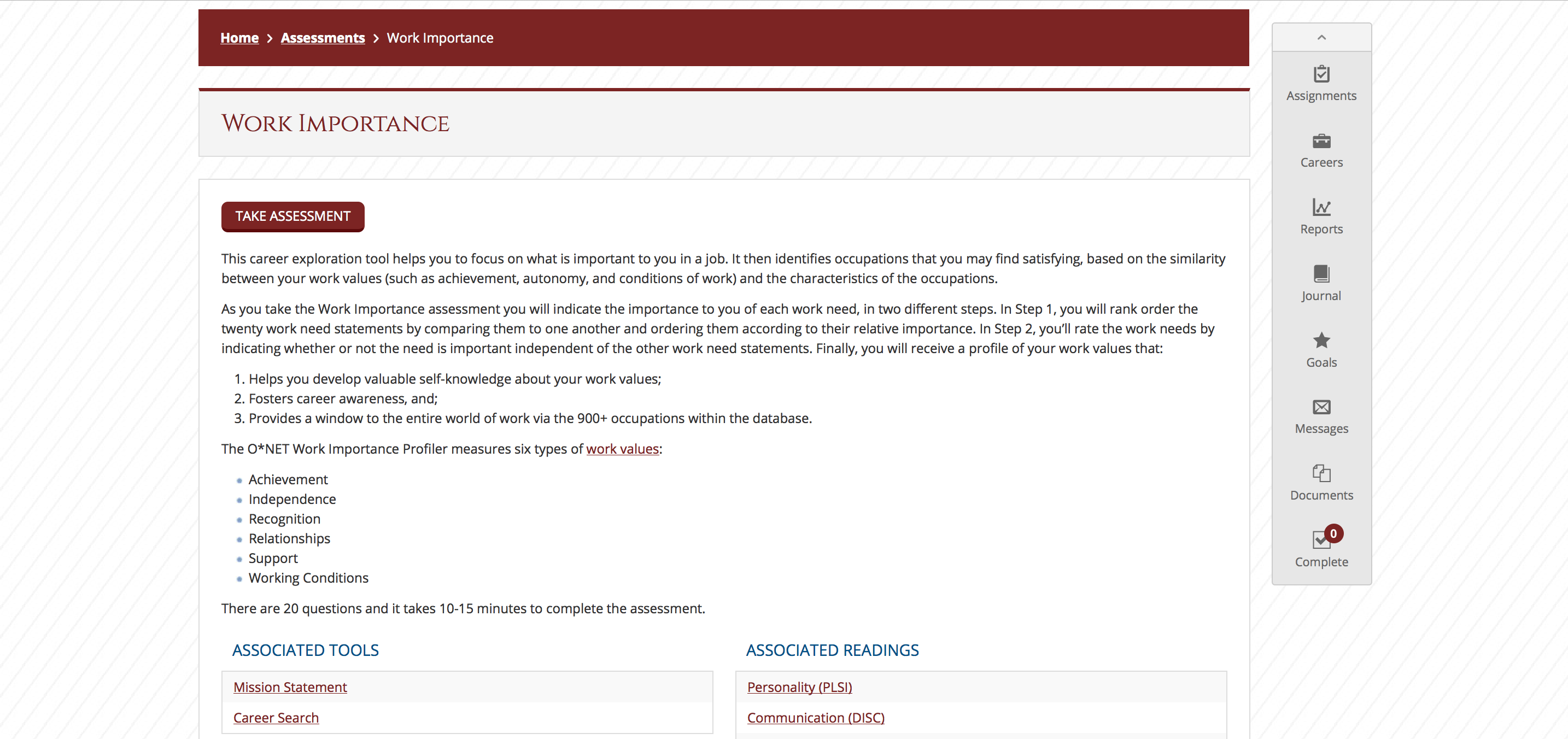
-

-
Sensory Learning Styles
The Sensory Learning Style Assessment helps students find out what their primary and secondary learning style preferences are (Visual, Auditory, Tactile or Kinesthetic). It will also give them some customized study techniques that will help them get the most out of their classes with the least amount of academic stress.
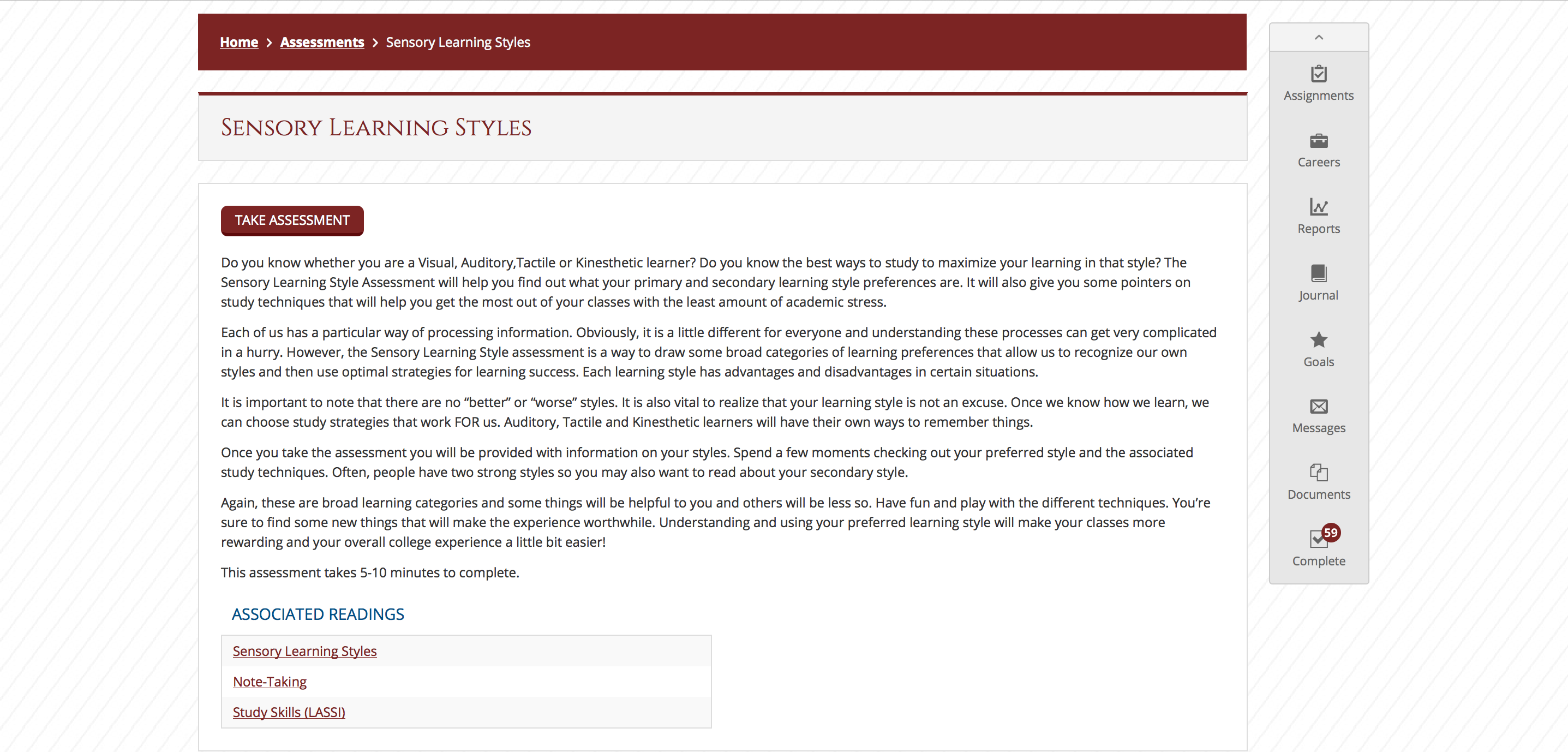
-
-
Navigator
The Navigator assessment identifies a student's particular areas of need and then rank orders the Campus ToolKit resources that will meet these needs. That gives students a personal map that they can use to progress through the system. Alternatively, the school may program a default list that can serve as a class syllabus.

-
-
- Pics/PDF
- Tools
- Online
- Book
-

-
Career Search
This tool allows students to search the database of over 900 careers. The results include information from the O*NET 10.0 database from the U.S. Department of Labor, Employment and Training Administration, and the Bureau of Labor Statistics, U.S. Department of Labor, Occupational Outlook Handbook, 2004-05 Edition.
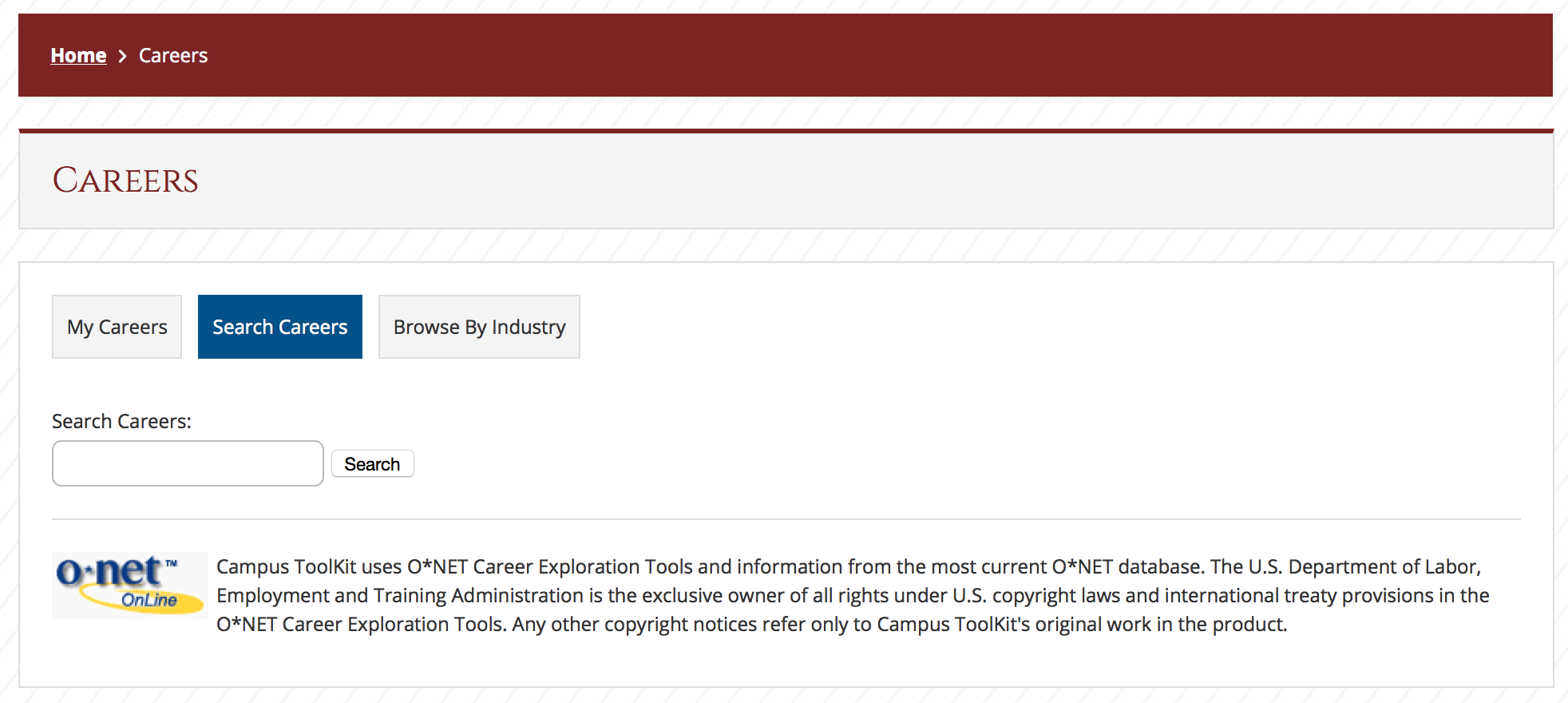
-
- Pics/PDF
- Knowledge Modules
- Online
- Book
-
-
System Orientation
This Flash video introduces students to the Campus ToolKit system.

-
-

-
Critical Thinking
The critical thinking module teaches students the basics of learning to think critically. It then examines their temperament assessments, such as the DISC, PLSI and Locus of Control for University Students, to help them identify the specific challenges and opportunities that their natural temperament profile presents in learning to think critically. Includes reflective writing exercises.
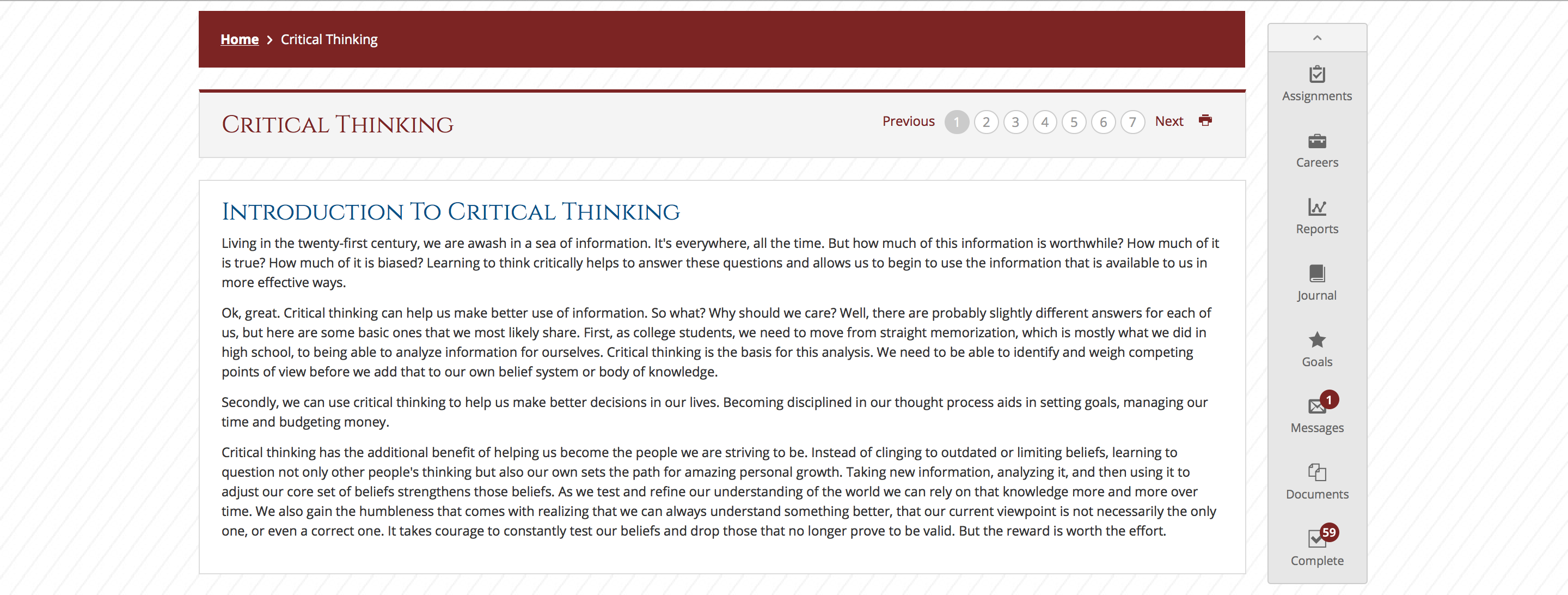
-
- Pics/PDF
- System Tools
- Online
- Book
-
-
To Do List
A simple way to prioritize and track things that need to be done.

-
-
- Pics/PDF
- Coach Screens
- Online
- Book
-

-
Reports
One of the nice things about having your students work online is that all the information is available to you at your fingertips. Our reports include assessment reports to show you all of your student's results. You can also see usage reports to monitor who's logging in. In addition to these basic reports the system also includes reports such as the At-Risk Student report, Student Comments, Student Service Requests, Average Contentment Levels, Weekly Summary and the Watch List report. There are also several reports available via email.

-
-
Online Training
We provide free training for mentors and coaches. There are several options for this training, but the most popular is to take advantage of the many Flash tutorials and online training screens included in the system.
-
-
-
Student View Options
The Interactive edition allows mentors multiple options for viewing student information. Schools also have options for restricting access to particular information.

-
-
-
Export Capabilities
Most reports in Campus ToolKit may be exported to Excel or Word.

-
-
-
Watch List
The feature allows you to track and monitor at-risk students.
-
-
-
Privatization Options
Schools decide who has access to student information. Some schools choose a team mentoring approach, others decide to make the mentoring relationship completely private.

-
-
- Pics/PDF
- Communication
- Online
- Book
-
-
Suggestion Box
We actively solicit ideas to benefit the school from students.

-
-
-
Site Feedback
Most of our development is done in response to user feedback.
-
-
-
Interactive Home Pages
Students can see notifications of new information and messages and they can also initiate dialogue with their mentors from the home page.

-

